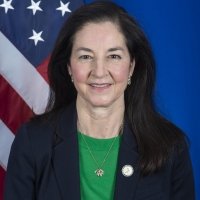The Precarious State of Our Oceans
Humanity has had an unequivocal impact on the world’s oceans and our continued growth in population has seen a declining rate in fish populations and the growth of hypoxic zones devoid of animal life. A recent study by the University of California Santa Barbara points to the role of human activity in degrading marine fauna.
On February 25, a panel of experts will discuss how the oceans are reacting to the growing threat from humans and what can be done from a biological and security standpoint.
The “Managing Our Planet” seminar series is developed jointly by George Mason University, the Brazil Institute and the Environmental Change and Security Program. It is based on the premise that the impacts of humanity on the environment (including natural resources) are at a planetary scale, requiring planetary-scale solutions.
Watch the Pristine Seas: Protecting an Ocean at Risk video here
Speakers

Author, Threat Multiplier: Climate, Military Leadership & the Fight for Global Security.

Hosted By

Brazil Institute
The Brazil Institute—the only country-specific policy institution focused on Brazil in Washington—aims to deepen understanding of Brazil’s complex landscape and strengthen relations between Brazilian and US institutions across all sectors. Read more


Environmental Change and Security Program
The Environmental Change and Security Program (ECSP) explores the connections between environmental change, health, and population dynamics and their links to conflict, human insecurity, and foreign policy. Read more
